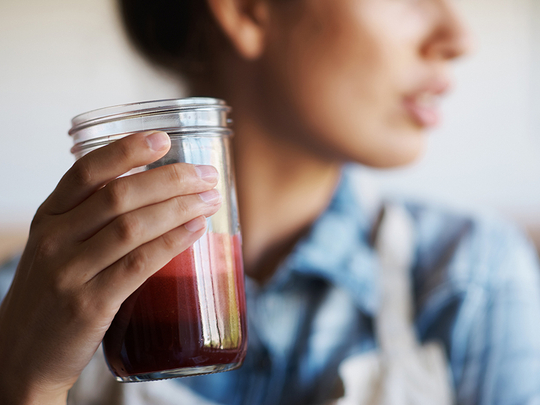
We make big decisions that define our life once in a while, but every day we make critical decisions such as should I have takeaway for breakfast or a healthy bowl of oats? Do I want tacos with extra cheese or a bowl of salad for lunch? Should I snack on an apple at five or a bag of crisps? Should I deep-fry the chicken for dinner or choose a steak instead?
Decisions, decisions, decisions. There is no escaping them, but your day-to-day choices influence whether you maintain vitality as you age or develop life-shortening illnesses and disabling conditions such as heart disease, diabetes and high blood pressure.
Adopting a healthy diet and lifestyle has become a crucial requirement amid growing concerns of lifestyle-related diseases and disorders. Although one is advised to take up healthier habits, the transition can be sometimes challenging.
“Very often people start a new diet, planning meals and exercising for a few days or weeks before reverting to old and generally poor health habits,” says Dr Wafaa Ayesh, Director of Clinical Nutrition, Dubai Health Authority (DHA). “Taking another look at your own nutrition, weight and physical activity is the ultimate secret
to becoming healthy and keeping your weight under control for good.”
Eliminate toxins from the body
Many people kick-start their healthy living through detoxification based on the concept of elimination of toxins from the body in order to promote health and loss of weight. Detox diets range from fasts that include no calorie intake (starvation) to juice cleanses or solid foods that restrict the intake of certain foods. Our bodies remove toxins depending on what the toxin is. The liver is primarily responsible for detoxification but the kidneys, digestive system, skin, lungs and the lymphatic system are also involved in this process.
“Although there is little evidence to support the use of commercial detox diets for removing toxic substances from the body, there are some preliminary studies suggesting that certain nutritional components possess detoxification properties,” says Dr Ayesh.
Some studies suggest certain nutrients such as malic acid (found in grapes and wine), citric acid (found in citrus fruits), succinic acid (found in apples and blueberries), citrus pectin (found in the peel and pulp of citrus fruits) and chlorella (a type of green algae) exhibit natural chelating properties, suggesting they may be useful for the elimination of toxic metals.
But primarily detox diet puts the body on an intense fast resulting in possible dehydration, loss of weight through loss of water and muscle mass and fatigue among other things.
Enlist help of family and friends
Determination and a shift in perspective are necessary to change the way you eat. If people try to view healthy eating and moving their body as non-negotiable daily habits, then they will be more successful in changing their lifestyle.
Enlisting the help of friends and family is important so that they are aware what the person undergoing the detox is doing and why they are doing it.
“It is important that they are supportive and understand that negative moods are a result of the side effects of detox and not the person him/herself,” explains Zeina Younes, Clinical Diabetes Dietician Specialist at the Dubai Diabetes Centre, DHA.
“A diet that is a drastic reduction of calories, fats and proteins can result in the body having an adverse response to it. These diets have very little or no protein and hence results in the body losing the muscle mass due to continued mobilisation of protein from muscles,” explains Younes.
Also, the body loses water thereby shows a false indication of weight loss. Little or no loss of body fat is seen.
Some of the symptoms that may be experienced when people switch from an unhealthy to a detox diet include:
Irritability and moodiness
This is caused by the toxins that are present in the body. This is however only during the initial phase of the whole body detox.
Tiredness/fatigue
This includes lack or loss of energy. This symptom may be minimised if the detox is started gradually and the body is prepared ahead of time. The best way to deal with these symptoms is to avoid any strenuous activity in order to preserve energy.
Body aches/pains, cravings, withdrawal
With loosening of the bowel being one of the most common side effects of detox, it is important to properly hydrate in order to replace all the electrolytes lost.
Acne/rashes
They arise due to the toxins being eliminated through the skin.
Weight loss and gain
It has been said that the weight lost during a detox diet is hard to maintain over the long term. One of the reasons is the fact that levels of the stress hormone, cortisol, are elevated in diets that restrict calories.
Balance is key
Adopting a balanced and nutritious diet is a simple way to support your body’s hard work. “Balance is key as compared to alternating from detox to retox,” says Dr Ayesh.
“It’s important to ensure your body obtains the necessary nutrition it needs to function optimally.”










